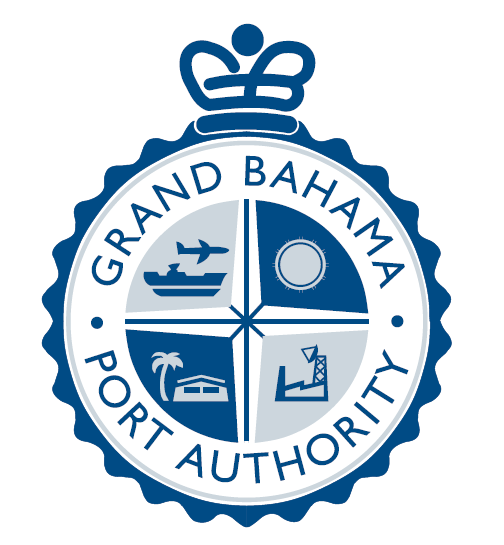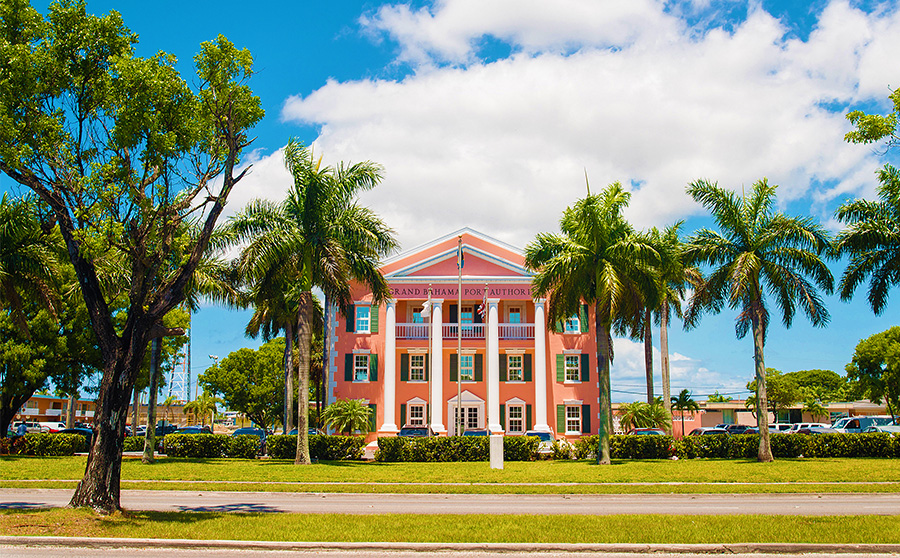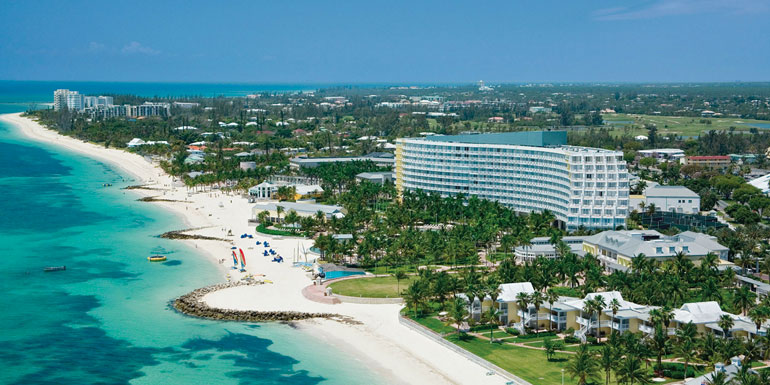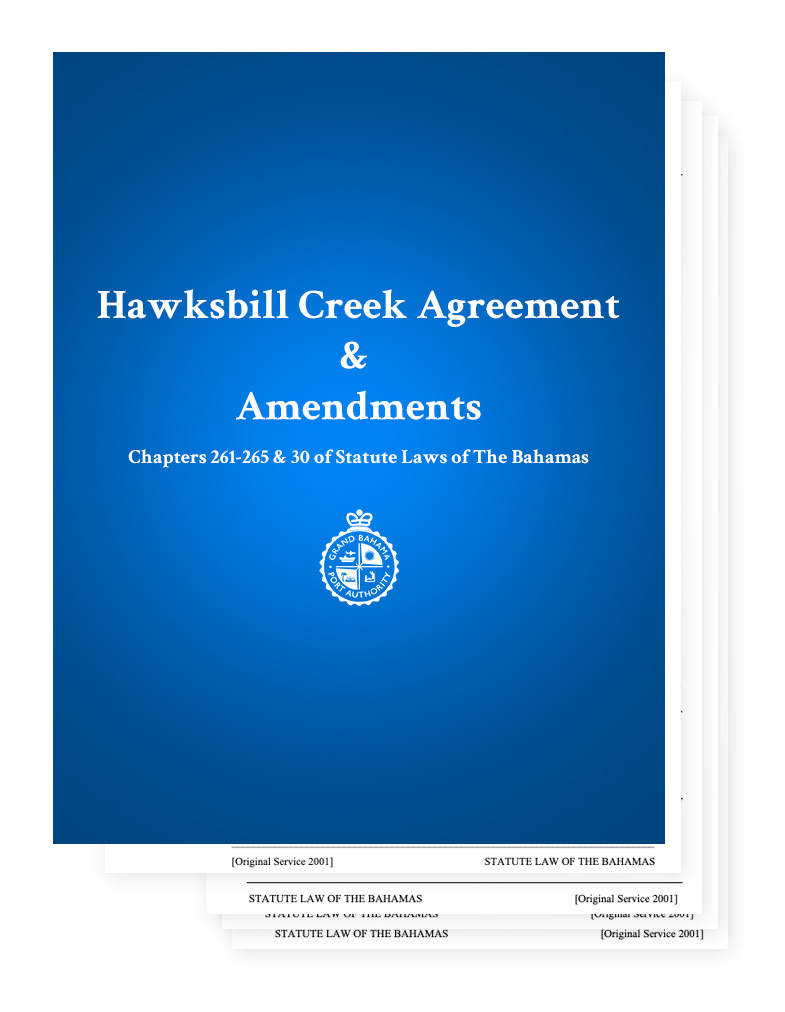Corporate Profile
GBPA is primarily owned by Inter-Continental Diversified Corporation (IDC). Its function is mainly a regulatory one. We ensure the orderly and progressive development of land in the Port Area through: zoning and land use management, functionality and appearance, including all horizontal and vertical development; the Issuance of Building Permits, Building Code Compliance, Occupancy Certificates, and Contractor Certification.
GBPA is responsible for the issuance of business licenses, vendor permits, bonded goods; also the inspection of premises, and deterrence of illegal operations. We also oversee the upkeep and beautification of public spaces, road/infrastructural maintenance, rehabilitation and reconstruction, hurricane planning; also environmental management, regulatory compliance, and public awareness, and the management, presentation and analysis of spatial data through geographical information system (GIS).

About The Grand Bahama Port Authority
Responsibility for the development, administration and management, and provision of services within the "Port Area".
The Hawksbill Creek Agreement (HCA) gave GBPA responsibility for the development, administration and management, and provision of services within an area called the 'Port Area' (230 sq. miles). GBPA was mandated by this Agreement to build a deep water harbour, an industrial community and required infrastructure for the City. GBPA is responsible for nurturing and regulating all commercial and residential development within the 'Port Area' of Grand Bahama.
During the early 1950s American investor, Wallace Groves, and British financier, Sir Charles Hayward pioneered development on Grand Bahama Island. Their vision for development led to negotiations with the Government of The Bahamas and the signing of the Hawksbill Creek Agreement. The Agreement, executed on August 4th, 1955, created, the 'Port Area', and gave birth to the City of Freeport.
The agreement required the dredging of a deep-water harbour at Hawksbill Creek in the western sector of the Port Area. It also granted to GBPA responsibility for the provision, management, and administration of all infrastructure, municipal and community services, and for development of 50,000 acres of crown grant land which was later extended to 138,000 acres. This, together with an additional 12,000 acres purchased by the GBPA from other parties, forms the 160,000 acre 'Port Area'.
The agreement also conveyed to the area the legacy of a "free port" with substantial tax concessions for financial, commercial and industrial enterprises. The guarantee of these rights through the year 2054 distinguishes Freeport, Grand Bahama, as a business centre with unsurpassed competitive advantages within the region.
4th August 2005 marked the 50th Anniversary of the Signing of the HCA by the Government of The Bahamas with GBPA. This signing gave birth to the City of Freeport.

The Hawksbill Creek Agreement
The original Free Trade Zone on which all the others are based.
Creation of the Port Area
On August 4, 1955 the Hawksbill Creek Agreement (HCA) was signed by the Government of The Bahamas with The Grand Bahama Port Authority, Limited (GBPA). This signing gave birth to the city of Freeport.
The HCA gave GBPA responsibility for the development, administration and management, and provision of services within the ‘Port Area'. GBPA was mandated to build a deep water harbour, an industrial community and the required infrastructure for Freeport
The Bahamas Government, being satisfied with the success of the progress made by GBPA to fulfill all mandates in the 1955 HCA, amended the Agreement in 1960 and 1966 in order to encourage the development of tourism and real estate.
To further invigorate the economy, the Government and GBPA entered into an Agreement in 1993, which extended relief from real property tax until 2015, in consideration of numerous economic and social initiatives to be undertaken by GBPA.
The HCA introduced the second largest economic platform in The Bahamas, caused significant development to Grand Bahama and created great confidence for international investors, as evidenced by the major investments made into the island's economy.
The City of Freeport
The revenue of GBPA is derived mainly from license fees, services charges and building permit fees. In addition to funding the regulatory administration of the Port Areas, these fees are used for general administration, road maintenance, signage, and landscaping from the boundary of Eight Mile Rock, eastward to the boundary of High Rock.
These privately owned subdivisions, within the Port Area, are not included: Bahama Terrace, Hudson Estates, Maliboo Reef, North & South Bahamia, Pine Ridge Estates, Queens Cove, Silver Cove, Royal Bahamia Estates, Tamarind.
In addition, The Grand Bahama Development Company has developed numerous subdivisions in the Port Area. The maintenance of these subdivisions is the sole responsibility of private developers.


Promoting Investment
Invest Grand Bahama is GBPA's investment brand responsible for the attraction, promotion and maintenance of new investments into Freeport, Grand Bahama.
Organizational Structure
The Grand Bahama Port Authority is organized into a regulatory body and for-profit subsidiaries/partnerships.
Port Group Limited
The investment group of companies fully owned by the shareholders of Inter-continental Diversified Corporation are:
- Freeport Commercial & Industrial Limited
- Carrick Group Limited
- Grand Bahama Utility Company
Joint Venture Companies
The Grand Bahama Development Company Limited
Jointly-owned by Port Group Limited (PGL) and HDBL (Hutchison Development Bahamas Limited).
Freeport Harbour Company Limited
Jointly-owned by PGL and HPH and managed by HPH.
Sea Air Business Centre
Jointly-owned by PGL and HPH and managed by HPH.
Urban Sanitation Limited
Jointly-owned by PGL and Advanced Disposal and managed by Advanced Disposal.
Grand Bahama Shipyard Limited
20% owned by Port Group Limited.


